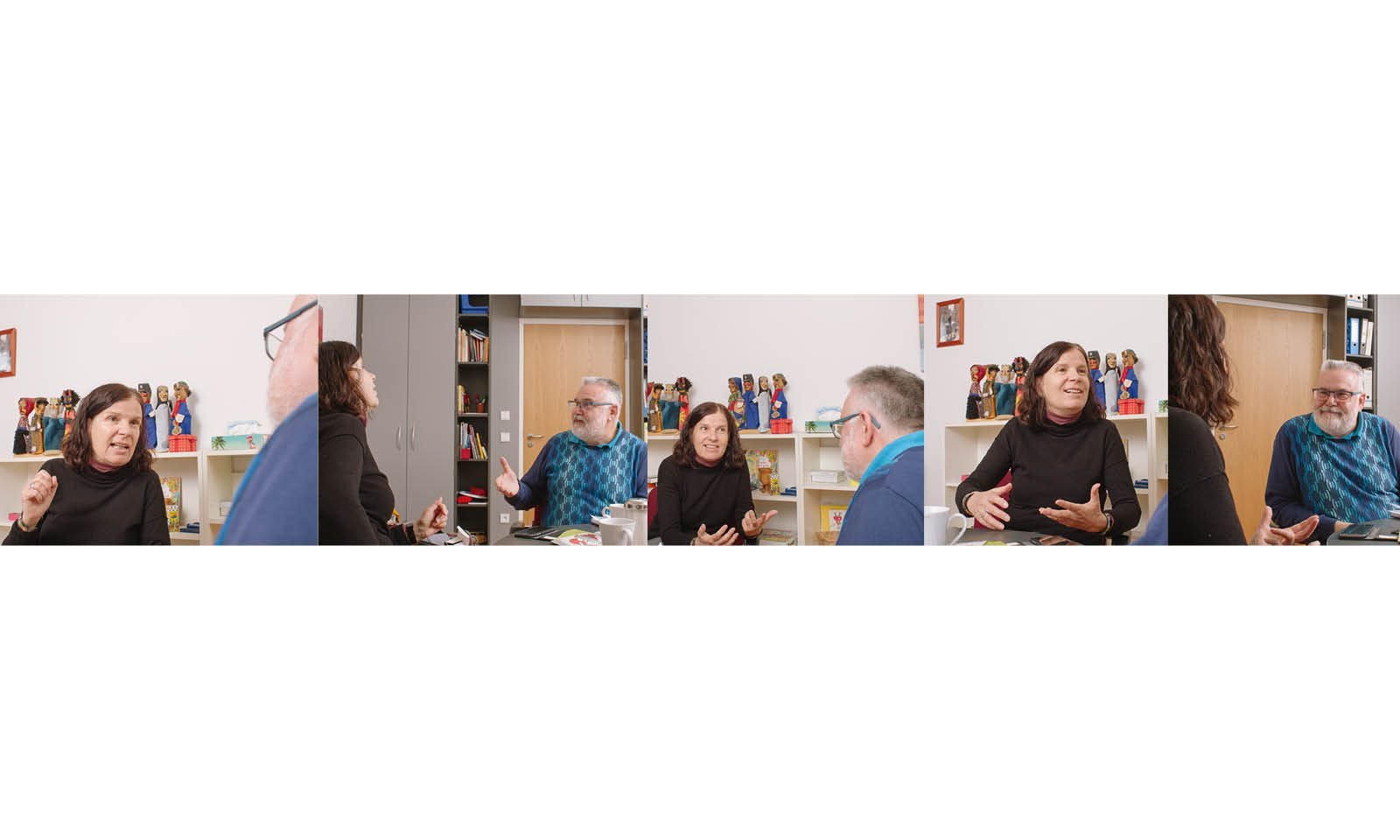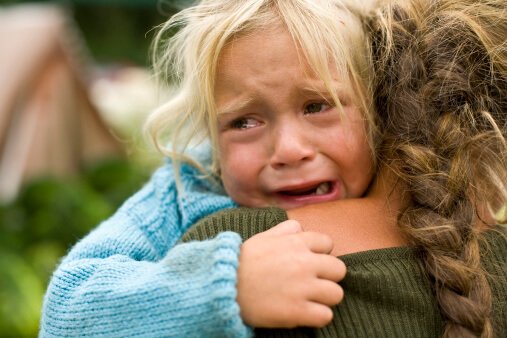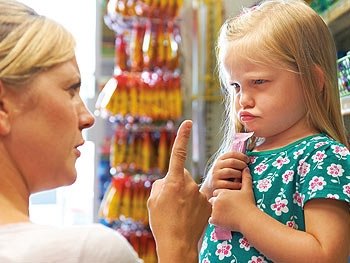Also as a gift idea!
We can now meet our little artists from the Waldorf kindergarten in Künzelsau again in the annual calendar for 2020. The colorful and expressive watercolors in wet-on-wet technology were designed by the Künzelsau advertising agency Scanner for an attractive annual calendar.
In the handy 16×18.5 cm format, it can be placed on the desk (with a beautiful wooden base) or hung on the clip with its clip. The individual motifs can also be used as postcards. It is also a nice gift and can be purchased in the toy shop "This and That" in Künzelsau and in the farm shop Frank in Garnberg. All proceeds from this donated calendar will go to the Waldorf Kindergarten.
Prices: Calendar 8 euros; Wooden base 2 euros
While stocks last.

We are looking for a federal volunteer or FSJ student or educational helper f / m / d
We are looking for representatives for our kindergarten
In our kindergarten group, approx. 20 children aged 2 years are looked after by two kindergarten teachers and one federal volunteer or helper until they start school.
The children are in kindergarten 5 days a week from 7 a.m. to 1 p.m. or 2 p.m..
We are looking for specialists as well as people with joy, interest and experience in living together with children. Knowledge of Waldorf education would be desirable, but not a basic requirement.
We look forward to your application!
contact:
Manuela Egner (07947-9416310, This email address is being protected from spambots. You need JavaScript enabled to view it.)
Next events
| Tue, Jan 21, 2020 at 8:00 p.m. Private |
reading Group
Waldorf kindergarten Künzelsau
Bucherstube
Waldorf kindergarten Künzelsau
Freedom and limits in education
Waldorf kindergarten Künzelsau
Freedom and limits in education
Hermann Lenz House Künzelsau
Throw gold and silver over me
Hermann Lenz House Künzelsau
Easter bunny and Easter eggs
Waldorf kindergarten Künzelsau
Information evening in kindergarten
Waldorf kindergarten Künzelsau
Highly sensitive children
Upbringing and educational goals in Waldorf education for children up to school ability
Children are born as individualities who develop with their talents, inclinations, interests and also handicaps and want to go their own way. In order to make this process as good as possible, they need competent adult role models, loving and safe relationships and their own development time.
Children do not belong in the time grid of the adult world nor in their political or economic purposes. Children are learnable, eager to learn and willing to learn. Your development windows are particularly wide open in the first years of childhood and school. This gives rise to a responsibility to shape their living environment in such a way that they develop healthily (salutogenesis) and
• learn to recognize the world in its context (understandability),
• gain confidence in your own growing powers and abilities (manageability),
• discover the meaningfulness of your own actions, feelings and thinking.
The question of schooling ability should not be based on party political or economic interests, but rather on the physical, mental, intellectual and social development of the child. The time before school serves to develop so-called basic skills free of school learning, on which later school education can build. It is precisely these basic skills that enable later adolescents and adults to master the performance requirements of life, and only then lay the foundations for subsequent differentiations.
Waldorf kindergartens as competence centers
Right from the start, Waldorf kindergartens do not see themselves as mere preservation facilities, but instead want to improve the starting and development conditions of the individual child and enable them to have a happy, learning-intensive and happy childhood. Children before school age do not need – and tolerate – one-sided intellectualization. But also no cuddle education. They need the attentive accompaniment of their parents and well-trained educators who give them orientation and the chance to learn. This is the only way they can find their own way. In Waldorf education for the first six to seven years of life, or in Waldorf kindergartens, seven areas of competence are considered learning and development goals:
Body and movement skills
Scientists and teachers have found postural problems, overweight or balance problems in more than half of the first graders. Many children suffer from lack of exercise, their gross and fine motor skills are insufficiently developed. Not only is there a problem for the health insurance companies, but also for society: The mental and spiritual well-being of people corresponds to their physical flexibility, those who cannot keep their physical balance are more likely to have problems with their mental balance. The ability to move also has a decisive influence on language acquisition. Understanding something and being able to approach it shapes the perception, broadens the child’s horizon of experience and activates the language development process. In this way, children who learn to move actively and in a variety of ways also prepare for increasingly qualified thinking.
In the Waldorf kindergarten, special attention is paid to ensuring that the children move in a variety of ways: regular walks or playing and working in the garden are just as much a part of this spectrum as the rounding or finger games and needlework (such as sewing or embroidery).
Methodological notes: Body perception, body feeling and gross and fine motor skills develop e.g. B. when running, climbing and skipping ropes, when dancing, playing and working in the garden or in the kitchen, playing simple musical instruments, working on the workbench (making simple objects, e.g. a bird feeder).
Sensory and perception competence
Virtual worlds are spreading, they pretend to us qualities that are not really there. In order not to fall for these illusions, we need to be able to rely on our senses more than ever, we need an increased perception competence. Our children need an alert awareness of what is going on around them and what is happening to them. This sensorium develops with confidence in your own perception, so you need reliable, unadulterated impressions during this time. Also the Media skills required later will be given an educational foundation here.
“Media literacy,” says the American computer expert Joseph Weizenbaum, “means the ability to think critically. You learn to think critically through critical processing reading, and this requires a high level of language competence. ”
In the Waldorf kindergarten, the children should therefore first of all be able to discover and explore the real world with their senses and get to know and understand simple, perceptible relationships. In this way, paired with their own joy of discovery, they gradually experience elementary laws of nature. Such basic prerequisites should at least exist before children can open up more complicated connections. Computers or televisions in kindergarten therefore do not in any way promote the media skills required later.
Methodological notes: Care of the twelve human senses, for example touch, sense of life, sense of self-movement, sense of balance, sense of smell, sense of taste, sense of hearing, sense of sight. Foods that are produced healthy and close to nature, the authenticity of the materials used, which are not designed to deceive the senses (looks like wood, but is plastic), promote this development as well as harmoniously designed rooms and the beneficial coordination of colors and materials in the environment of the Child – to name just a few examples.
linguistic competence
Thinking and speaking are closely related. Only with language can we express what we have thought, express our feelings, give a name to all things in the world and get into conversation. However, this instrument requires early, active and careful care. Children learn to speak in a speaking environment. What matters most is the human relationship between the speaker and the listener. The linguistic and emotionally warm relationship between child and adult forms the breeding ground for good and differentiated speech. When children start to speak varies individually. But all need good language role models in adults to grow into the language.
Songs, stories, verses, finger games and rhymes are very important in the Waldorf kindergarten. In this way, the children learn the language with ease and are at home in it. The language used by the teachers should be loving, clear, clear and pictorial – and appropriate for the age group. The so-called baby language will therefore not be found here, nor will abstract explanations.
Methodological notes: Good linguistic models, clear, verbose and pictorial language, songs, verses, finger games, rhymes, professional and proper naming of the objects, e.g. B. the names of plants and animals, daily storytelling or reading of meaningful stories, fairy tales and the like. Ä., Let the children speak, do not correct them linguistically, take time to listen – this creates reading pleasure and reading ability.
Imagination and creativity skills
The contradiction is omnipresent: more and more is standardized, prefabricated and defined around us. On the other hand, human and social development is hardly conceivable without imagination and creative creativity. But will we still be able to do that soon? How do we acquire and maintain this competence? If the future adult is rightly required to have a wealth of ideas, emotional and mental agility and imagination in the way of life and in the world of work, these skills must be developed at kindergarten age. Everything imaginative, everything artistic widens the soul and consciousness of man.
In the Waldorf kindergarten, the development and care of children’s imagination takes on a very concrete form. There are a particularly large number of toys that have not yet been standardized and hardly finished, which stimulate the creative powers of the children. Stories tell children to translate what they have heard into creative creativity. Daily seasons give the necessary time so that the children can work extensively, with concentration and always sparking enthusiasm for creativity.
Methodological notes: Toys and game materials that are imaginative, d. H. are designed to be free, such as stones, boards, woods, cloths; regular seasons in the forest or garden, versatile play and design situations, e.g. B. role plays, puppet shows; guided free spins; Play out crafts, e.g. B. cobbler, carpenter, tailor, d. H. get to know so-called “primal activities” in a playful way and develop a relationship to them Hear stimulating stories and implement them with ease.
social skills
Social interaction needs to be learned. Without social skills, the life of an individual and a community is unthinkable. Children are social beings from birth and want to learn to relate to human relationships. These learning processes begin in the family and continue in kindergarten. But more and more children, for example, grow up in one-child families, often with only one parent. This limits their social practice fields. Kindergarten must therefore lay the foundations for social experience fields more than ever. Social interaction is always about bringing the interests, wishes and needs of the individual into a relationship with the social community. Individuals must be able to contribute with their abilities and intentions (creative space) in order to create a community based on a responsible impulse for freedom, in which, on the other hand, the interests of everyone have their place. This requires rules, appointments and trust. Children need communities in which they can learn as many of these social rules of life as possible and orient themselves on them.
The Waldorf kindergarten is such an orientating living space. In it, the children get to know a daily and weekly rhythm, learn that there are rules up to clear tasks for the individual children and the group (e.g. tidying up or setting the table). In doing so, they can always imitate the actions of the adult. And they learn to take on responsibility and to create their own creative space use – at the same time they practice in practical activities.
Methodological notes: Mutual help and tasks such as washing up or watering flowers, listening to meaningful stories; Role-playing games such as father-mother-child, fire brigade, hospital, shop; learn to give, take and share; experience the cooperation of parents in kindergarten, e.g. B. when repairing toys, at parties and celebrations or renovation work; Practicing conflict resolution, e.g. B. learn to apologize.
Motivation and concentration skills
Many children, adolescents and adults today suffer from a lack of concentration, nervousness, hyperactivity. They are handicapped in their creativity and ability to connect with certain tasks for a while. The causative factors for this have long been studied in science and education (pathogenesis). At the same time, it is important to know and strengthen the healthy and stabilizing conditions (salutogenesis).
Waldorf education sees its task in combining the two concepts with one another: it tries to keep away impressions that have proven to be harmful to the development of the young child (e.g. television at an early age), in contrast, it focuses on the healing factors. For example, she looks at children’s learning and activity needs at an early age and tries to stimulate them through role models and imitation. Regular repetitions and rhythmic design elements in the kindergarten from the daily routine to the annual run with many highlights and annual festivals help to develop the children’s ability to concentrate, interesting and stimulating activities have a motivating effect on the children.
Methodological notes: Games you design yourself, toys that stimulate self-activity and offer a wide range of possibilities, get to know work holistically from start to finish and try it out yourselfto bake, washing, gardening), stimulating through the interest of the educator, experiencing life-style activities of adults instead of senseless or unhealthy activities.
Ethical and moral competence
Children and adults need mental and spiritual orientations, values and tasks with which they can connect internally in order to shape their own lives. Children need rules, rituals, clarity and truthfulness. They want to experience adults who are committed, who give them moral orientation – without moralizing. However, many children today often only find the standards of the fun and leisure society in their environment without bearing obligations.
Waldorf education deliberately incorporates moral and ethical education into its educational concept. She responds to the fact that children need a coordinate system for good, beautiful and true, as well as respect for other people, other cultures and creation. And they should also learn that this involves personal commitment.
Methodological notes: Orienting stories, preparing and celebrating festivities, loving nature, avoiding Wischi-Waschi pedagogy, practicing charity, gratitude (saying a table before dinner) and willingness to help, experiencing the commitment of parents in clubs, in politics , in kindergarten; pay attention to multicultural features; Get to know the customs of other peoples, whose songs sing and hear stories.
V. i. S. d. P .: Peter Lang, Initiative "Right to Childhood", a project within the International Association of Waldorf Kindergartens e. V., c / o Waldorf kindergarten seminar,
Heubergstrasse 11, D-70188 Stuttgart; Telephone 0711 / 268447-0; Fax 0711 / 268447-44
www.waldorfkindergartenseminar.de
The following publications have been published in the series "Right to Childhood – A Human Right":
1. Childhood in danger (P. Lang / S. Pühler)
2. Drugs and addiction – prevention through education (F. Vogt)
3. A good nursery – requirements for small child education (P. Lang / S. Pühler)
4. Childhood falls silent – language loss and language care in the age of the media (R. Patzlaff)
5. Development towards sexuality – accompanying education and enlightenment (M. Wais)
6. Children need fairy tales (A. Esterl)
7. Children and computers – arguments from Waldorf education
8. Behavioral disorder or behavioral originality (H. Köhler)
9. Give the children time – Education for children up to school age (P. Lang)
Nominal fee per piece: 0.50 euros; Nos. 7 and 9: 1 euro each plus postage
Orders by fax 07 11/26 84 47-44 or
Nowhere is a society more evident than in the way it treats its children. Our success must be measured by the happiness and well-being of our children, who are the most vulnerable citizens and their greatest wealth in any society. ”
RELATED ITEMS
-

Children need boundaries – citykirche – the magazine of evang-luth
When young people become parents, the joy of the new earthly man prevails. However, parents first have to learn themselves in their new role…
-

Outbursts of anger: children need us exactly then – I’m a mother
Values, emotional intelligence and personality traits that every child develops are no accident. As responsible adults…
-

Children need fairy tales – learn to distinguish between good and bad: at
Fairy tales inspire children Fairy tales offer children orientation in life. They give clear differentiators for "good" and "bad". So there is in…
-

Education – children need clear rules, kidsgo
In this Article: Upbringing – Children Need Clear Rules Even If This Is Only a Small, Everyday Example, Parents Often Ask the Question,…
